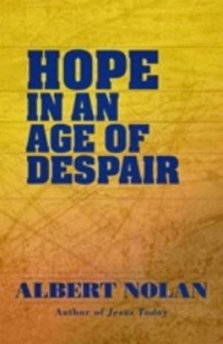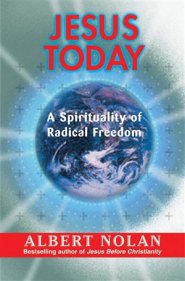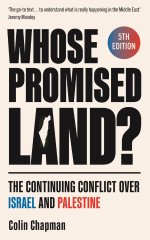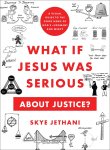Albert Nolan is a Dominican priest from South Africa who wrote a classic 30 years ago called Jesus before Christianity He writes. ‘My aim this time is to look .. At what Jesus might mean to you and me and our contemporaries in the twenty-first century. It is a book about spirituality, Jesus’ own spirituality, which I have chosen to call a spirituality of radical freedom’.
The book is in 4 parts. In the first part Nolan examines the nature of our postmodern society, and identifies a number of defining signs of the times – a hunger for spirituality, a crisis of individualism, a movement from the grassroots which seeks to overcome global suffering and a new understanding of the uncertainties built into the physical world. He concludes that ‘we have moved into an age that is full of promise but fraught with unimaginable dangers’. It is precisely at such a time as this, Nolan suggests, that we are most in need of a rediscovery of the spiritual life. Books about spirituality tend to marginalise Jesus, but Jesus had a spirituality of his own from which we can learn.
In part two he looks at Jesus’ revolutionary outlook on the world into which he was born, at his role as prophet and mystic, and at his holistic ministry of healing. His conclusion: Jesus was stupefyingly free: free to contradict the assumptions, customs and norms of his society; free to love without reserve; free to be fearless, to give up his life. Jesus’ freedom knew no limits because his trust in God knew no limits.
Bearing this in mind, Nolan moves on to look at our own need for personal transformation. He focuses on Jesus’ need for silence and solitude, on his insistence that we should know ourselves, on his appreciation of thankfulness, on the injunction that we should be childlike, and on the need we have to let go. Speaking eloquently about our busyness and the effect it has upon our souls, about our possessiveness and anxiety, he suggests that freedom is to be found in detachment – surprisingly, even in detachment from God: ‘Trusting God, as Jesus did, does not mean clinging to God; it means letting go of everything so as to surrender ourselves and our lives to God. There is a difference between attachment and surrender.. We don’t need to hold on tightly, because we will be held, like a child in the arms of its parents.’
The final part of the book is devoted to the subject of oneness – with God, with ourselves, with other people, and with the universe. Here too there are some striking observations: ‘Happiness is the ability to handle my pain, whatever it may turn out to be, and to postpone or give up pleasure whenever necessary’.
This is a wise book, full not of new information but of challenging observation. It would make a good read for a retreat. The temptation is to read it and say yes, exactly right, undeniable – but then to move on. The challenge is to absorb and apply it.
Trustpilot










